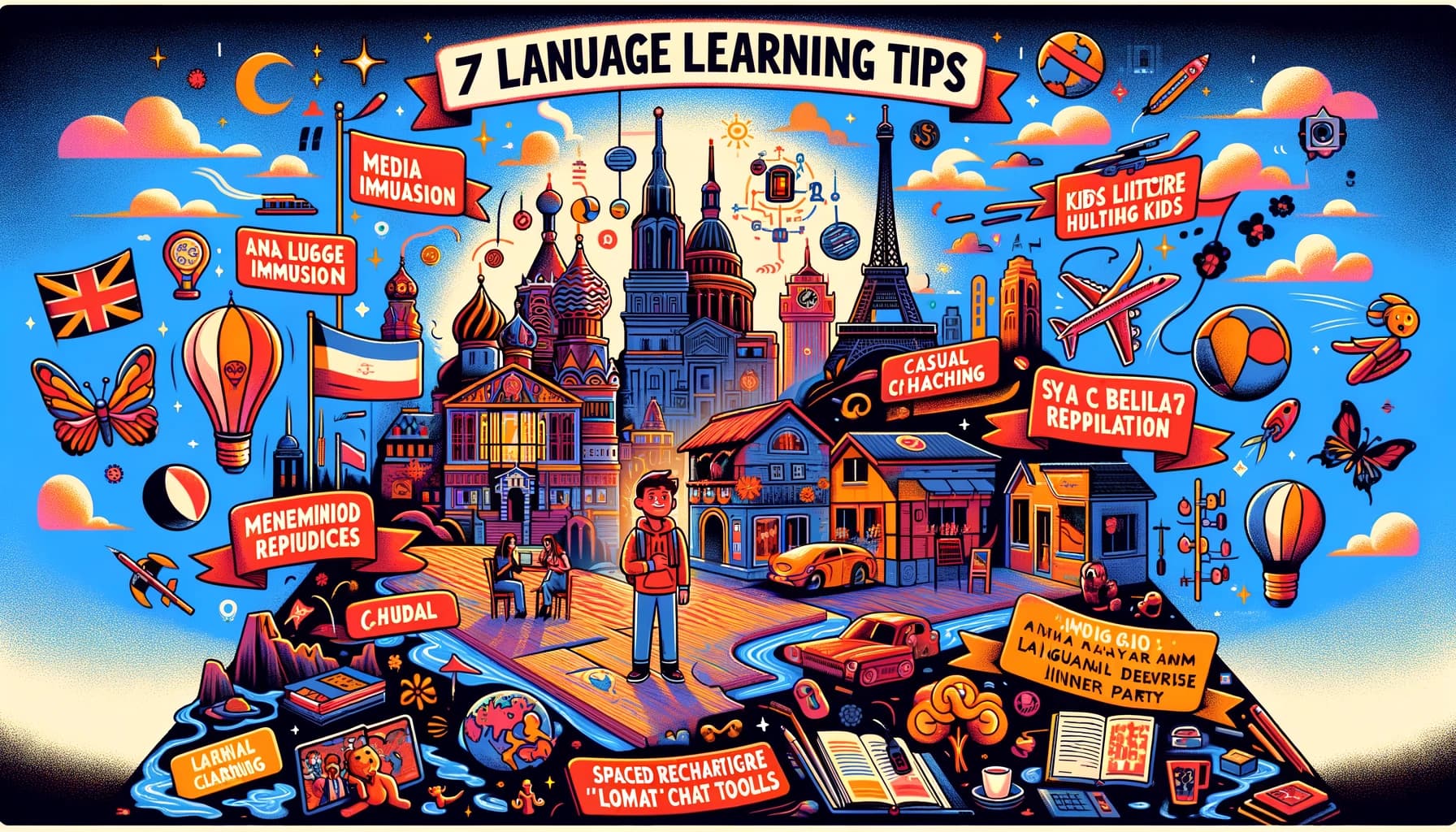As an adult "Third Culture Kid" who grew up moving around 4 countries, learning foreign languages has been crucial for me to adapt locally. It hasn't always been easy with plenty of awkward moments over the years! But the rewards have been worth it - from professional opportunities to lifelong friendships formed.
Now I speak Russian, English, Dutch fluently, and I'm mostly conversational in French and Spanish. I'm currently learning German since I moved to Switzerland last year.
So after 25+ years of language learning trials and triumphs while living abroad, I want to share key strategies and tips on what helped me progress from knowing nothing about a language to speaking it fluently.
Why Learn Languages?
Learning languages opens doors in profound ways. Sure, fluency can benefit your career or make travel easier, but more importantly, it grows your brain like little else can. Bilingual and polyglot minds often have superior memory, creativity, and critical thinking abilities.
But it goes deeper than cognitive enhancement. Immersing yourself in a new language means stepping into a different world—connecting with its rhythms, histories, values and traditions. It allows you to move beyond surface interactions and actually bond with people from vastly different backgrounds. There is immense joy to be found in that human connection!
Granted, it’s hard work. You’ll make mistakes, no doubt about it. But eventually you’ll reach that magical moment when real conversation starts to flow. The sense of achievement from gaining even basic fluency is like nothing else. It builds confidence and momentum to keep learning, to never stop expanding your linguistic horizons.
Here are 7 tips from my language learning journey to accelerate your progress:
1. Immerse Yourself Fully
I still remember barely uttering "hallo" in Dutch when I landed in Belgium at 5 years old. But I quickly got hooked on local kids' comic books. I'd keep asking my parents to take me to the library to check out more. Soon I was reading them on my own, then watching cartoons, and eventually speaking Dutch fluently (granted, school helped too).
The point is, I immersed myself in the language and culture from the start. I didn't wait until I was "ready" to start consuming media in Dutch. I just jumped in and learned as I went. It was fun, not a chore. And that's the key to success: make it enjoyable!
So find a show or podcast you like and start listening. Even if you don't understand much at first, you'll pick up more than you think. And you'll be surprised how quickly you start to understand the gist of what's being said. It's a great way to build confidence and momentum.
Even better, travel to a country where your target language is spoken. There's no better way to learn than to be immersed in the culture. You'll be forced to speak it every day, and you'll pick up local slang and idioms that you'd never learn from a textbook.
Pro Tip: Watch movies with subtitles in your target language. It's a great way to learn new vocabulary and get a feel for the rhythm of the language.
2. Use Mnemonics
French vocabulary lists slipped my mind no matter how hard I crammed in middle school. The abstract words seemed impossible to retain. Then I got creative with quirky doodles and symbols, like visualized la montagne (mountain) as a jagged triangle with a hiker stick figure. Bizarre maybe, but linking words to memorable images worked way better than repeating translations for hours!
Pro Tip: Transform boring dictionary entries into engaging visual stories using sketchnoting techniques. Anchoring words to wacky doodles embeds recall more deeply than rote memorization.
3. Talk More
My biggest Spanish regret was wasting so much time hesitating to speak from perfectionism, although I understood some conversations when I heard my Spanish flatmates chatting. I finally got over my fear of sounding silly by chatting with locals when I was surfing in the Canary Islands. I'd ask them to correct my mistakes, and they'd happily oblige. I learned more in those casual conversations than I did from years of grammar books.
Pro Tip: Even 5 minutes daily of casual dialogue practice out loud builds intuitions no textbook alone provides. Recite basic phrases if shy initially speaking to others.
4. Anki Flashcards
Discovering apps like Anki was a game-changer when tackling French. Beyond just showing words once, the spaced repetition system re-triggers memories right when you're about to forget. Recalling vocab in different contexts embeds meanings deeply over time. I also create Cloze deletion cards missing key verbs/nouns to fill in. Saving tons of study time while accelerating was life-changing!
Pro Tip: Upload lists to Anki/Quizlet for efficient digital flashcards. Their algorithm identifies which words need review for optimal memorization.
5. Find Language Partners
Local friends make learning fun rather than a lonely chore. I meet cool partners worldwide through apps like HelloTalk and Tandem. Casually chatting via text/voice messages verifies my phrase usage.
If digital connections still intimidate you, look for language cafes in your city to practice face-to-face over coffee without pressure, there are often regular meetups in major cities.
Pro Tip: Seek out weekly/monthly language tables hosted locally to ease into in-person exchanges if anxious chatting 1-on-1 initially.
6. Talk with AI Chatbots
I've been hugely impressed with AI chat platforms like Magicbuddy bot on Telegram recently for practice chatting with an AI friend (or an AI girlfriend?). Think of it like a 24/7 virtual tutor minus the costs! Simply text the bot messages/clips on any topic, and it will understand/respond appropriately without human judgment we may fear. I find the feedback helps me gain fluidity intuitively finding the right words over time. Give it a try!
Pro Tip: AI chatbots provide benefits similar to real teachers but are infinitely more patient. So don't be shy to try unlimited conversations on every topic to build skill through practice!
7. Attend "Second-Degree" Dinner Parties
Recently while learning German, I started attending "2nd degree dinners" where a host invites friends & strangers, including non-native speakers, facilitating interesting cross-cultural conversations over homecooked meals. This pushes me just enough out of linguistic comfort zones in an inclusive environment. And I expanded my social circle meeting welcoming locals happy to mentor language learners!
Pro Tip: Local cooking classes taught in your target language combine food culture+linguistic learning in a relaxed setting. And you walk away with new recipes to share!
Conclusion
After living overseas for many years, I simply can't envision not striving to understand the local language and culture in each new home. Though progress may seem gradual at times, small daily efforts compound over months and years into fluid communication.
I hope these tips from my experiences abroad inspire you to open your mind to the possible - regardless of your current skills or age. With the right blend of customized tools, patient practice amidst imperfect progress, and most importantly an attitude of lighthearted perseverance, fluency is within reach.
Now I'm off to whip up some Dutch pancakes while chatting with my Spanish bot! I may even use my breakfast to spark some quirky new French vocabulary sketches. Wherever you are, here's to engaging with the world around us with bravery and creativity.


